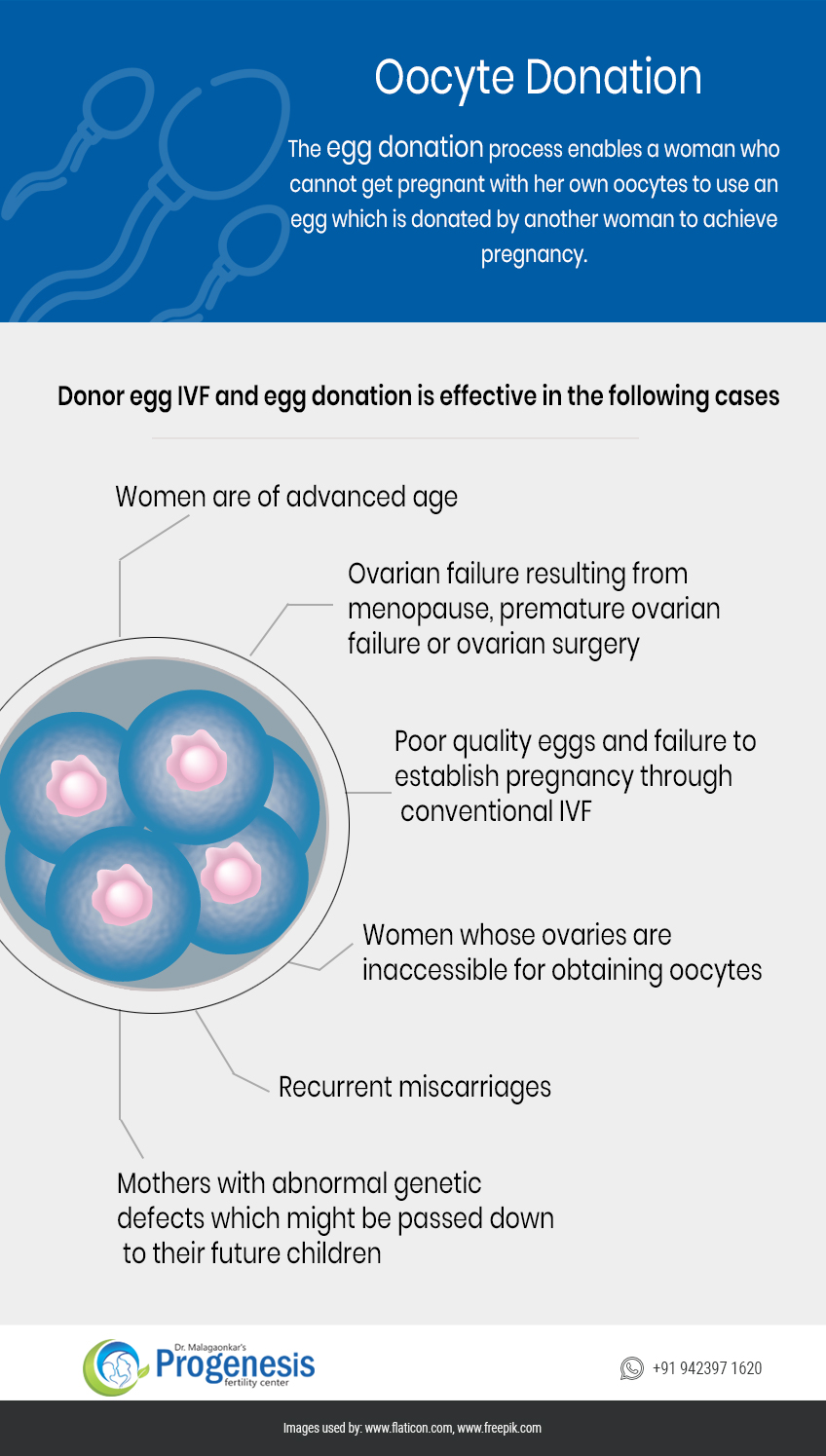Egg donation is a procedure in which a fertile woman gives an oocyte or egg, to other woman to help her to get pregnant. It is a part of ART or assisted reproductive technology. The process naturally covers a physician eliminating an egg from the contributor, fertilizing them in a laboratory, and then moving the resulting embryos into the recipient’s uterus. Doctors do this using an implantation procedure, such as in vitro fertilization (IVF). The ideal candidate for the egg donation process should be between 23 and 33 years of age. The donor is usually known to the woman and in many instances; it’s a close family member or friend who willingly donates one of their oocytes for the procedure.
The egg donation procedure consists of harvesting and fertilizing the eggs or preserving them. Ovulation induction is used to stimulate the release a healthy egg which is then harvested under ultrasound guidance using special instruments. It is effective for women whose ovaries are inaccessible for obtaining Oocytes Donation. Also it is helpful for mothers with abnormal genetic defects which might be passed down to their future children. This process is known as ‘donor egg IVF’. It is the preferred type of fertilization process in egg donation as fertilization occurs in a lab environment and is not affected by abnormalities of the ovaries or fallopian tubes of the intended mother. Subsequently, a complete medical check-up is performed to make sure there are no medical problems which might complicate the procedure. During the donation cycle, an egg giver will undergo numerous blood tests and ultrasound check-ups to monitor their reactions to the medications.

